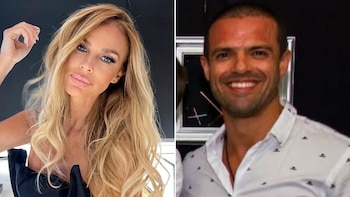
(ATR) There will be no Russian participation at the PyeongChang 2018 Olympic Games Closing Ceremony.
The IOC unanimously upheld its ongoing suspension of the Russian Olympic Committee, after two anti-doping rule violations marred good behavior by the Olympic Athletes from Russia team. The IOC did vote to lift the suspension of the ROC immediately on the conclusion of the anti-doping testing at PyeongChang, pending no further positive tests.
Quorum for the meeting was reached by having 52 out of a possible 97 members present in PyeongChang for a Session.
President Thomas Bach said today that the decision on Russian reinstatement would come from the executive board after hearing from the IOC Session on the matter. The board met for almost four hours yesterday after hearing from the OAR Implementation Group and could not come to an agreement.
OAR IG chair Nicole Hoevertsz offered a report to the session and recommendation that Russia not be allowed to participate under its own flag. Hoevertsz said the two anti-doping rule violations caused "significant concern" for the panel, as well as challenges against the IOC decision in Russia.
Bach echoed the implementation group’s recommendation saying the board "would have considered lifting the suspension because the OAR delegation as such respected the decision of the IOC Executive Board" if it were not for the doping violations.
"Therefore, no delegation of the ROC will have taken part in these Olympic Winter Games," Bach said.
"This was hugely disappointing and, in addition to other considerations, prevented the IOC from even considering lifting the suspension for the closing ceremony. Subject to the continued compliance with the IOC executive board decision on Dec. 5, 2017 the suspension of the ROC is considered to be lifted once the Doping Free Sport Unit has confirmed that there is no additional Anti-Doping Rule Violation by members of the OAR delegation."
Input from the IOC Session was largely supportive of the Executive Board’s recommendation, but multiple members brought up alternatives to hastily lifting the suspension once all anti-doping tests were complete.
Tricia Smith from Canada and Barry Maister from New Zealand questioned if it was in the IOC’s best interest to reinstate Russia so quickly, and that a more concrete solution should be codified.
"I still have a huge concern that all most vetted and monitored and watched group of athletes we still have two that have cheated," Maister said. "There is more work to do in the second phase to delay the reinstatement, I’m not sure if the [board’s] second statement is enough, I think there needs to be a process in place for reinstatement."
Hoevertsz said that the IOC "[has] to draw a line and look to the future," with regards to Russia. She said that the group wanted to reinstate Russia, but the circumstances surrounding the team made that "not possible".
"I believe with that we bring this story to an end and look forward," Hoevertsz said. "It is never going to be business as usual in the world of sport and Russia."
Numerous IOC members spoke in support of the executive’s decision including Russian Shamil Tarpischev and former Vice President John Coates. Coates referenced "multiple apologies" from Russian officials over the current predicament, and echoed the fact that the two doping violations appeared to be isolated cases.
"Russia as a country indeed complied with all the conditions set out in the condition dated 5th of December, and the two doping cases are accounted by the lack of cultural education," Tarpischev said to the IOC members. "We believe this should be the end of this problem and pave the way for a new way in our sport."
Following the period for comment by members, the IOC Executive Board took a short break to consider the suggestions by Smith and Maister. The board returned with a ruling to keep its recommendation the same and it was unanimously approved by the members.
Questions now remain on when in fact the final doping violations would be tested. More importantly, the IOC did not address what would happen should a violation be found during the mandatory retesting. Samples from the 2018 Olympics will be stored for a decade, when they will be tested under more advanced measures to determine if the laboratory missed any anti-doping rule violations.
Written by Aaron Bauerin PyeongChang
25 Years at #1: Your best source of news about the Olympics is AroundTheRings.com, for subscribers only.
Últimas Noticias
Utah’s Olympic venues an integral part of the equation as Salt Lake City seeks a Winter Games encore
Utah Olympic Legacy Foundation chief of sport development Luke Bodensteiner says there is a “real urgency to make this happen in 2030”. He discusses the mission of the non-profit organization, the legacy from the 2002 Winter Games and future ambitions.

IOC president tells Olympic Movement “we will again have safe and secure Olympic Games” in Beijing
Thomas Bach, in an open letter on Friday, also thanked stakeholders for their “unprecedented” efforts to make Tokyo 2020 a success despite the pandemic.

Boxing’s place in the Olympics remains in peril as IOC still unhappy with the state of AIBA’s reform efforts
The IOC says issues concerning governance, finance, and refereeing and judging must be sorted out to its satisfaction. AIBA says it’s confident that will happen and the federation will be reinstated.

IOC president details Olympic community efforts to get Afghans out of danger after Taliban return to power
Thomas Bach says the Afghanistan NOC remains under IOC recognition, noting that the current leadership was democratically elected in 2019. But he says the IOC will be monitoring what happens in the future. The story had been revealed on August 31 in an article by Miguel Hernandez in Around the Rings

North Korea suspended by IOC for failing to participate in Tokyo though its athletes could still take part in Beijing 2022
Playbooks for Beijing 2022 will ”most likely” be released in October, according to IOC President Thomas Bach.



